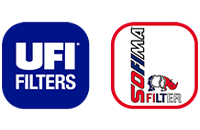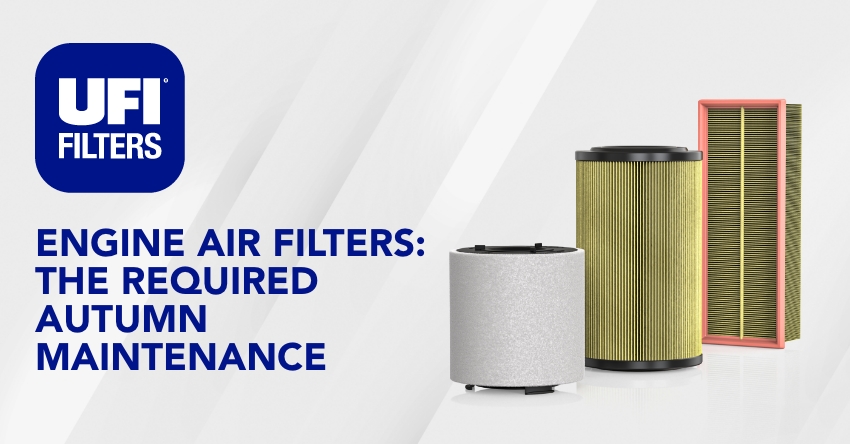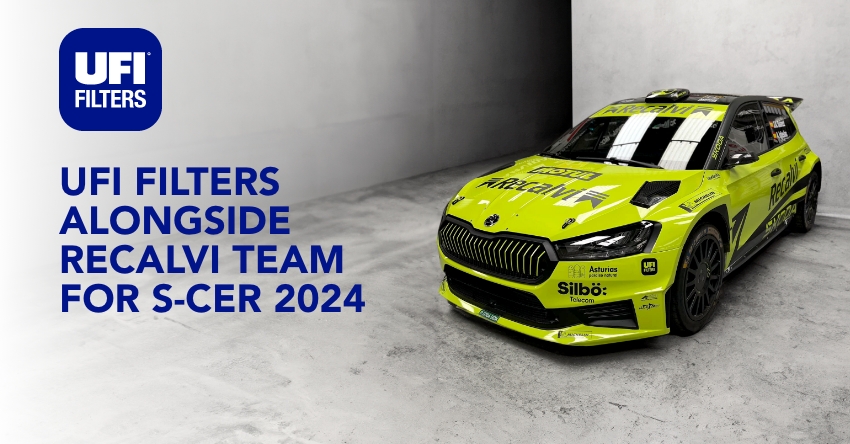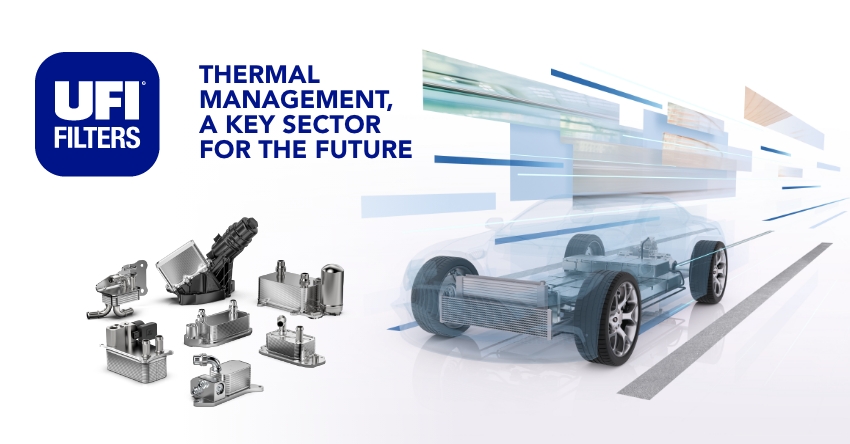At the end of summer, an engine air filter can be particularly dirty due to the dry weather, long journeys on dusty roads, or accumulated insect and pollen residue. A dirty and clogged filter can significantly reduce the air flow to the engine, compromising its performance and increasing fuel consumption. As such, it is important to change the engine air filter in autumn to ensure optimum operation.
What is the engine air filter?
The air filter is a fundamental component for optimising performance, fuel economy and ensuring a long service life for a car or commercial vehicle’s engine. This oft-neglected component plays various key roles in vehicle performance:
- Protecting the engine: the filter captures particles of dirt and debris present in the air, preventing them from entering the intake system. This helps prevent wear and the accumulation of damaging deposits on the inner surfaces of the engine components, such as the valves, pistons and combustion chambers.
- Improved performance: a clean flow of air without obstructions is essential for correct engine operation, as it improves combustion efficiency and vehicle performance. Correct combustion also means better acceleration, improved responsiveness, and greater power.
- Improved fuel efficiency: poor power when accelerating, caused by a restriction in the nominal air flow required in the combustion chamber due to a clogged filter, will cause the driver to press harder on the accelerator, resulting in increased in fuel consumption.
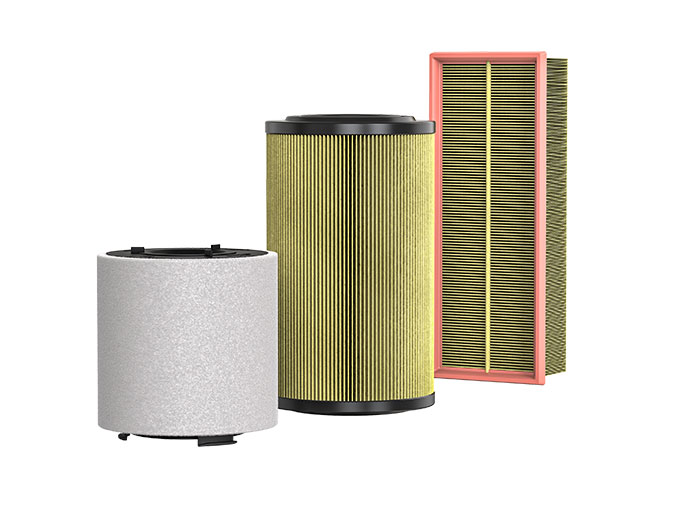 What are the consequences of a clogged air filter?
What are the consequences of a clogged air filter?
If the air filter is not regularly replaced, this can lead to various consequences including:
- Increased fuel consumption
- Premature wear on the engine and other components
- Clogging of valves and injectors
- Excessive noise and potential engine seizure
- Foul-smelling exhaust fumes due to uncontrolled combustion
- Unstable idle and unexpected stalling
There are three types of engine air filter.
The most common engine air filter types on the market are:
- Paper engine air filters. These are composed of pleated filter paper able to retain particles of different dimensions, which is more sensitive to the humidity level of the air. They tend to clog up more quickly than other types, hence requiring more frequent changes.
- Cotton engine air filters. These use cotton filter material treated with special oils to improve its efficiency. They are generally used in motorsport and can be cleaned and reused multiple times, thus reducing waste, however frequent cleaning will degrade their filtration performance over time.
- High-performance engine air filters, such as those produced by UFI Filters. They are designed to improve the lifespan, power and efficiency of the engine.
UFI Filters manufactures two types of air filter with specific materials:
-
- FormulaUFI.Cell, made from cellulose combined with synthetic fibres to maximise its mechanical stability, reduce pressure drops and, thanks to the hydrophobic treatment, increase its resistance to moisture, thus guaranteeing a longer service life. UFI’s filters are also flame-resistant, generally class F1. They can be combined with pre-filters in unwoven fabric to increase the solid-particle retention capacity.
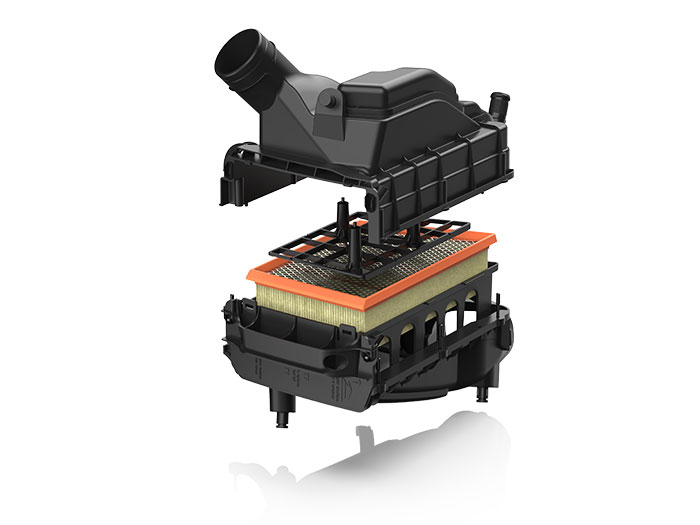
- FormulaUFI.EXTREME, a 100% synthetic filtration medium with additives that guarantee the impermeability of the filter and increase its service life. An example is UFI MULTITUBE, the revolutionary air filter made from hydrophobic fibres which guarantees improved fluid dynamics, decreasing air flow resistance and minimising pressure losses, so much so that it guarantees great power availability in terms of horsepower. This material also offers unparalleled flame resistance, achieving F1 classification, the highest available, on the DIN53438 – ISO standard – test which determines the level of flammability of commercial materials.
- FormulaUFI.Cell, made from cellulose combined with synthetic fibres to maximise its mechanical stability, reduce pressure drops and, thanks to the hydrophobic treatment, increase its resistance to moisture, thus guaranteeing a longer service life. UFI’s filters are also flame-resistant, generally class F1. They can be combined with pre-filters in unwoven fabric to increase the solid-particle retention capacity.
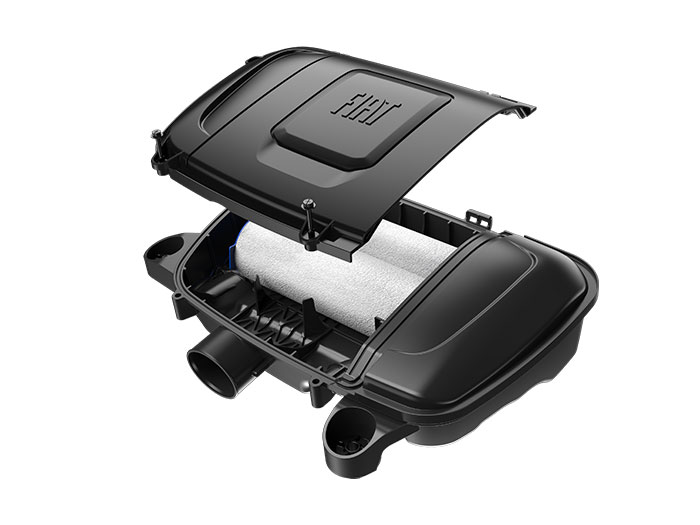 When does the air filter need to be changed?
When does the air filter need to be changed?
The engine air filter change frequency may vary depending on driving and ambient conditions, as well as the type of filter used. In general, it is recommended to consult the vehicle manual for the manufacturer’s specifications. In any case, typical intervals are around every 10,000-20,000 km, or else once a year. However, if you drive in particularly dusty conditions or use a lot of dirt roads, more frequent changes may be necessary.
When changing your filter, it is important to put your trust in a manufacturer of premium original spare parts such as UFI Filters, which is chosen by 95% of the world’s vehicle manufacturers. The quality of the original equipment is the same for the spare parts in the aftermarket catalogue, which offers greater than 98% coverage of the European fleet.
To find the engine air filter for your vehicle, you can consult the online catalogue which is regularly updated: www.ufi-aftermarket.com
